
The Libertarian Party (LP) is a political party in the United States that promotes civil liberties, non-interventionism, laissez-faire capitalism, and limiting the size and scope of government. The party was conceived in August 1971 at meetings in the home of David F. Nolan in Westminster, Colorado, and was officially formed on December 11, 1971, in Colorado Springs. The organizers of the party drew inspiration from the works and ideas of the prominent Austrian school economist, Murray Rothbard. The founding of the party was prompted in part due to concerns about the Nixon administration, the Vietnam War, conscription, and the introduction of fiat money.
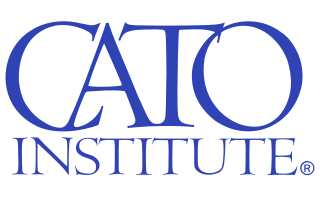
The Cato Institute is an American libertarian think tank headquartered in Washington, D.C. It was founded in 1977 by Ed Crane, Murray Rothbard, and Charles Koch, chairman of the board and chief executive officer of Koch Industries. Cato was established to focus on public advocacy, media exposure and societal influence.
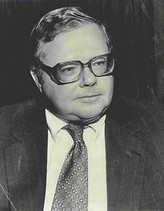
Roger Lea MacBride was an American lawyer, political figure, writer, and television producer. He was the presidential nominee of the Libertarian Party in the 1976 election. MacBride became the first presidential elector in U.S. history to cast a vote for a woman when, in the presidential election of 1972, he voted for the Libertarian Party candidates John Hospers for president and Theodora "Tonie" Nathan for vice president.
Individualist feminism, also known as ifeminism, is a libertarian feminist movement that emphasizes individualism, personal autonomy, freedom from state-sanctioned discrimination against women, and gender equality.
Libertarian perspectives on foreign intervention started as a reaction to the Cold War mentality of military interventionism promoted by American conservatives like William F. Buckley Jr. which had supplanted Old Right non-interventionism. The Vietnam War split the uneasy alliance between growing numbers of self-identified libertarians and the Cold War conservatives. Libertarians opposed to the war joined the draft resistance and peace movements and created organizations such as Students for a Democratic Society. The split was aggravated at the 1969 Young Americans for Freedom convention where the burning of a draft card sparked physical confrontations among convention attendees, a walkout by many libertarians, and the creation of antiwar libertarian organizations. Left-libertarians generally oppose foreign military intervention on anti-imperialist grounds, while right-libertarians also generally oppose foreign military intervention and generally oppose all government foreign aid as well. In the United States, the Libertarian Party opposes strategic alliances between the United States and foreign nations.

Edward E. Clark is an American lawyer and politician who ran for governor of California in 1978, and for president of the United States as the nominee of the Libertarian Party in the 1980 presidential election.
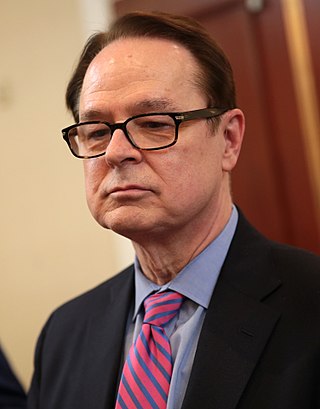
David Boaz is the former executive vice president of the Cato Institute, an American libertarian think tank.

Tom Gordon Palmer is an American libertarian author and theorist, a Senior Fellow at the Cato Institute and Vice President for International Programs at the Atlas Network.
Ayn Rand's philosophy of Objectivism has been, and continues to be, a major influence on the right-libertarian movement, particularly libertarianism in the United States. Many right-libertarians justify their political views using aspects of Objectivism.
George Hamilton Smith was an American author, editor, educator, and speaker, known for his writings on atheism and libertarianism.
Libertarianism is a political philosophy that upholds liberty as a core value. Libertarians seek to maximize autonomy and political freedom, and minimize the state's encroachment on and violations of individual liberties; emphasizing the rule of law, pluralism, cosmopolitanism, cooperation, civil and political rights, bodily autonomy, freedom of association, free trade, freedom of expression, freedom of choice, freedom of movement, individualism, and voluntary association. Libertarians are often skeptical of or opposed to authority, state power, warfare, militarism and nationalism, but some libertarians diverge on the scope of their opposition to existing economic and political systems. Various schools of libertarian thought offer a range of views regarding the legitimate functions of state and private power. Different categorizations have been used to distinguish various forms of Libertarianism. Scholars distinguish libertarian views on the nature of property and capital, usually along left–right or socialist–capitalist lines. Libertarians of various schools were influenced by liberal ideas.
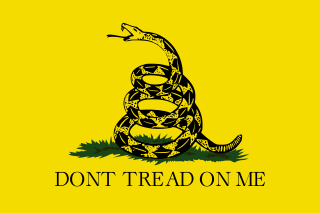
In the United States, libertarianism is a political philosophy promoting individual liberty. According to common meanings of conservatism and liberalism in the United States, libertarianism has been described as conservative on economic issues and liberal on personal freedom, often associated with a foreign policy of non-interventionism. Broadly, there are four principal traditions within libertarianism, namely the libertarianism that developed in the mid-20th century out of the revival tradition of classical liberalism in the United States after liberalism associated with the New Deal; the libertarianism developed in the 1950s by anarcho-capitalist author Murray Rothbard, who based it on the anti-New Deal Old Right and 19th-century libertarianism and American individualist anarchists such as Benjamin Tucker and Lysander Spooner while rejecting the labor theory of value in favor of Austrian School economics and the subjective theory of value; the libertarianism developed in the 1970s by Robert Nozick and founded in American and European classical liberal traditions; and the libertarianism associated with the Libertarian Party, which was founded in 1971, including politicians such as David Nolan and Ron Paul.
Right-libertarianism, also known as libertarian capitalism or right-wing libertarianism, is a libertarian political philosophy that supports capitalist property rights and defends market distribution of natural resources and private property. The term right-libertarianism is used to distinguish this class of views on the nature of property and capital from left-libertarianism, a type of libertarianism that combines self-ownership with an egalitarian approach to natural resources. In contrast to socialist libertarianism, right-libertarianism supports free-market capitalism. Like most forms of libertarianism, it supports civil liberties, especially natural law, negative rights, the non-aggression principle, and a major reversal of the modern welfare state.

Libertarian Review was an American libertarian magazine published until 1981. It had been established by Robert Kephart in 1972 as a book-review magazine, initially titled SIL Book Review, then Books for Libertarians, and was renamed with the March, 1974 issue. In 1977, Charles Koch purchased the magazine and turned it into a national magazine under the editorship of Roy A. Childs, Jr.
Jeffrey S. Yass is an American billionaire business magnate. According to Forbes' list of the richest people in the world in 2023, Yass has a net worth of $28.5 billion, placing him as the 48th richest person in the world.

For a New Liberty: The Libertarian Manifesto is a book by American economist and historian Murray Rothbard, in which the author promotes anarcho-capitalism. The work has been credited as an influence on modern libertarian thought and on part of the New Right.
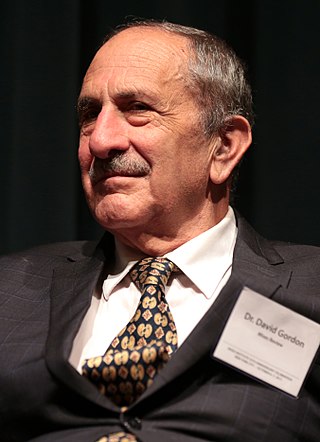
David Gordon is an American libertarian philosopher and intellectual historian influenced by Murray Rothbard's views of economics. He is a senior fellow of the Ludwig von Mises Institute, a libertarian think tank, and is editor of The Mises Review.
The Koch family is an American family engaged in business, best known for their political activities and their control of Koch Industries, the 2nd largest privately owned company in the United States. The family business was started by Fred C. Koch, who developed a new cracking method for the refinement of heavy crude oil into gasoline. Fred's four sons litigated against each other over their interests in the business during the 1980s and 1990s.
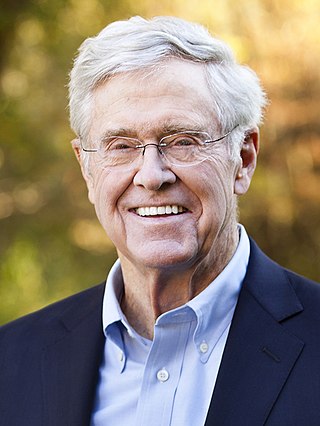
Charles de Ganahl Koch is an American billionaire businessman. As of June 2023, he was ranked as the 20th richest person in the world on the Bloomberg Billionaires Index, with an estimated net worth of $62 billion. Koch has been co-owner, chairman, and chief executive officer of Koch Industries since 1967, while his late brother David Koch served as executive vice president. Charles and David each owned 42% of the conglomerate. The brothers inherited the business from their father, Fred C. Koch, then expanded the business. Koch Industries is the largest privately held company by revenue in the United States, according to Forbes.











